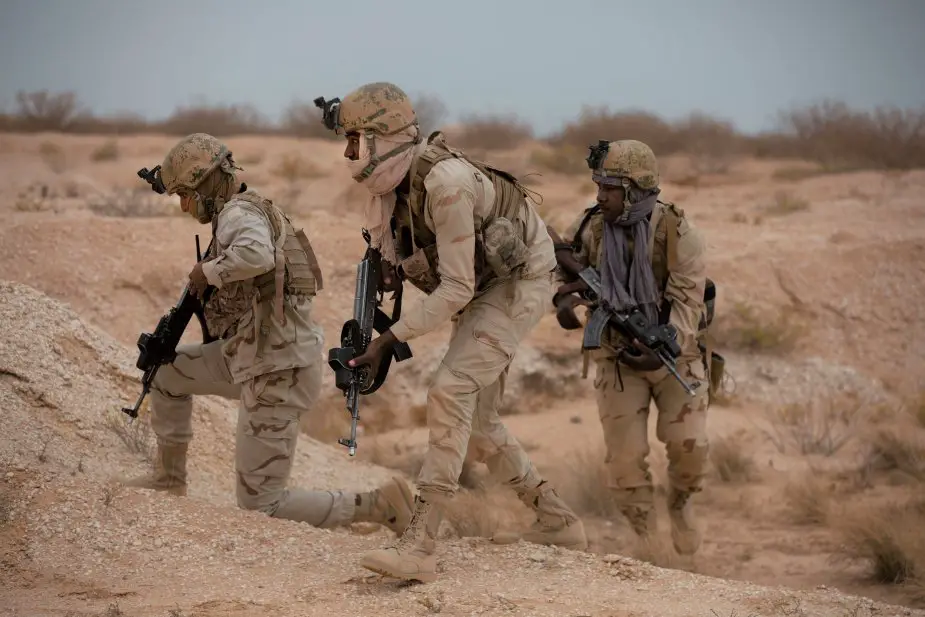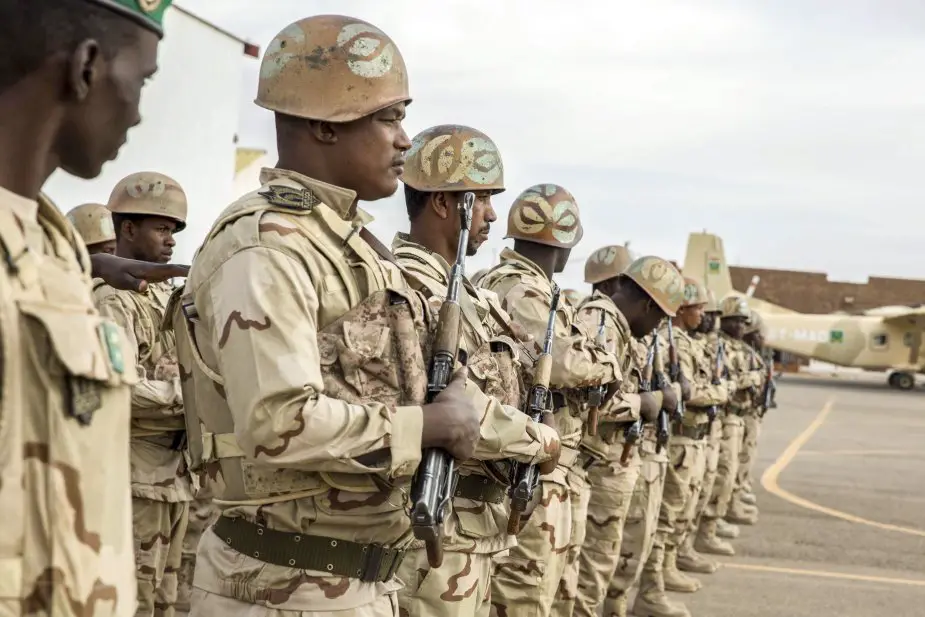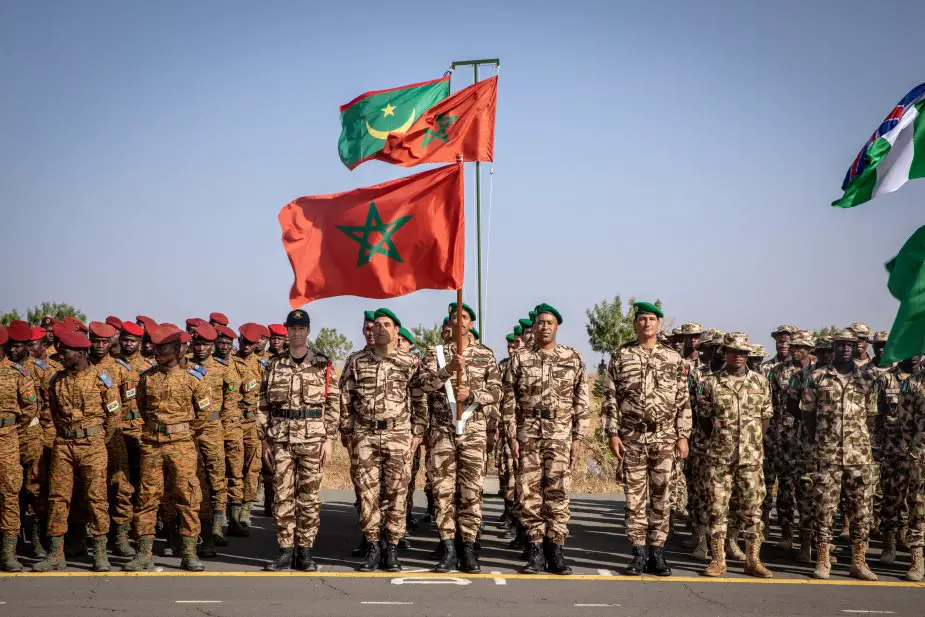Breaking news
Africom exercise Flintlock 2020 strengthens partnerships, security.
More than 1,600 service members from 30 African and Western nations celebrated the accomplishments of exercise Flintlock 2020 in Nouakchott, Mauritania. The African-led exercise is designed to strengthen the ability of key partner nations in the region to counter violent extremist organizations, protect their borders and provide security for their people. Jim Garamone, DOD News, reports.

A Mauritanian soldier pulls security during a simulated raid, building off intelligence gathered in pursuit of malign actors as part of the Flintlock 2020 scenario, near Nouakchott, Mauritania on Feb. 23, 2020 (Picture source: U.S. Army Staff Sgt. Sidney Sale)
R. Clarke Cooper, the assistant secretary of state for political-military affairs, called the exercise the sign of healthy partnerships. Cooper spoke in Mauritania at the ceremony concluding the exercise. The annual exercise is the U.S. Africa Command's premier and largest annual special operations forces exercise. Most of the exercise occurred in Mauritania and Senegal. The exercise aims at enhancing capabilities in counterterrorism. It also looks to strengthen civil-military relations within the nations of the region and interoperability regionally and with Western allies. "But more than being an opportunity for us each to improve individually, Flintlock is an opportunity for all our nations to grow together, in a healthy partnership," Cooper said.
"Not all partnerships are healthy," he continued. "But the one we celebrate here today is. How can I tell? Simple: Because it is a partnership based on mutual respect and shared values, not self-interest and exploitation. Because partnership contributes to self-sufficiency — not lasting dependency — and to sustainable capability — not burdensome debt. Partnership is not just a means to an end, but a path which we value for the friendships it creates, and the lessons we all learn, side-by-side."

Mauritanian soldiers stand in formation during the Flintlock 2020 opening ceremony in Atar, Mauritania, Feb. 17, 2020 (Picture source: U.S. Army Pfc. Clara Soria-Hernandez)
That West African nations face challenges is nothing new. Boko Haram is a major terrorist group that poses threats across the region. The infrastructure within the region is inadequate to support the growing population. Desertification, drought, illiteracy and other issues make progress slow and complicate the security picture. But that security underpins progress. "Today our forces are engaged in the defeat of violent extremism from the shores of the Red Sea to the coast of the Atlantic," Cooper said. "Together, we are combating piracy and countering illicit trafficking from the Mediterranean Sea to the Gulf of Guinea; across the Sahel. We are cementing security, and pursuing peace."
Flintlock is an example for the continent, Cooper said. The fact that 30 nations can work in partnership to address problems greater than any one nation can handle gives hope to the region and world for stability, security and lasting peace. "The United States has an unwavering and longstanding commitment to Africa," Cooper said. "We support good governance, security, the rule of law, opportunities for economic growth and anti-corruption efforts."
The U.S. works along many paths with African allies opening markets, providing aid money, even helping combat the Ebola outbreak. "Our relationship is one of cooperation, mutual respect and transparency, and today no other nation can match the United States' commitment to the continent," Cooper said. This is because a secure, prosperous and stable African continent is an enduring global interest.
Participating African nations include Burkina Faso, Cameroon, Chad, Cabo Verde, Guinea, Mali, Mauritania, Morocco, Niger, Nigeria and Senegal. Western partners include Austria, Belgium, Canada, the Czech Republic, Denmark, Germany, Italy, the Netherlands, Norway, Poland, Portugal, Spain, the United Kingdom and the United States.

African partners celebrate the conclusion of Flintlock 2020, after two weeks of intense training with U.S. and international forces, near Thies, Senegal on Feb. 28, 2020 (Picture source: U.S. Army Spc. Miguel Pena)


























